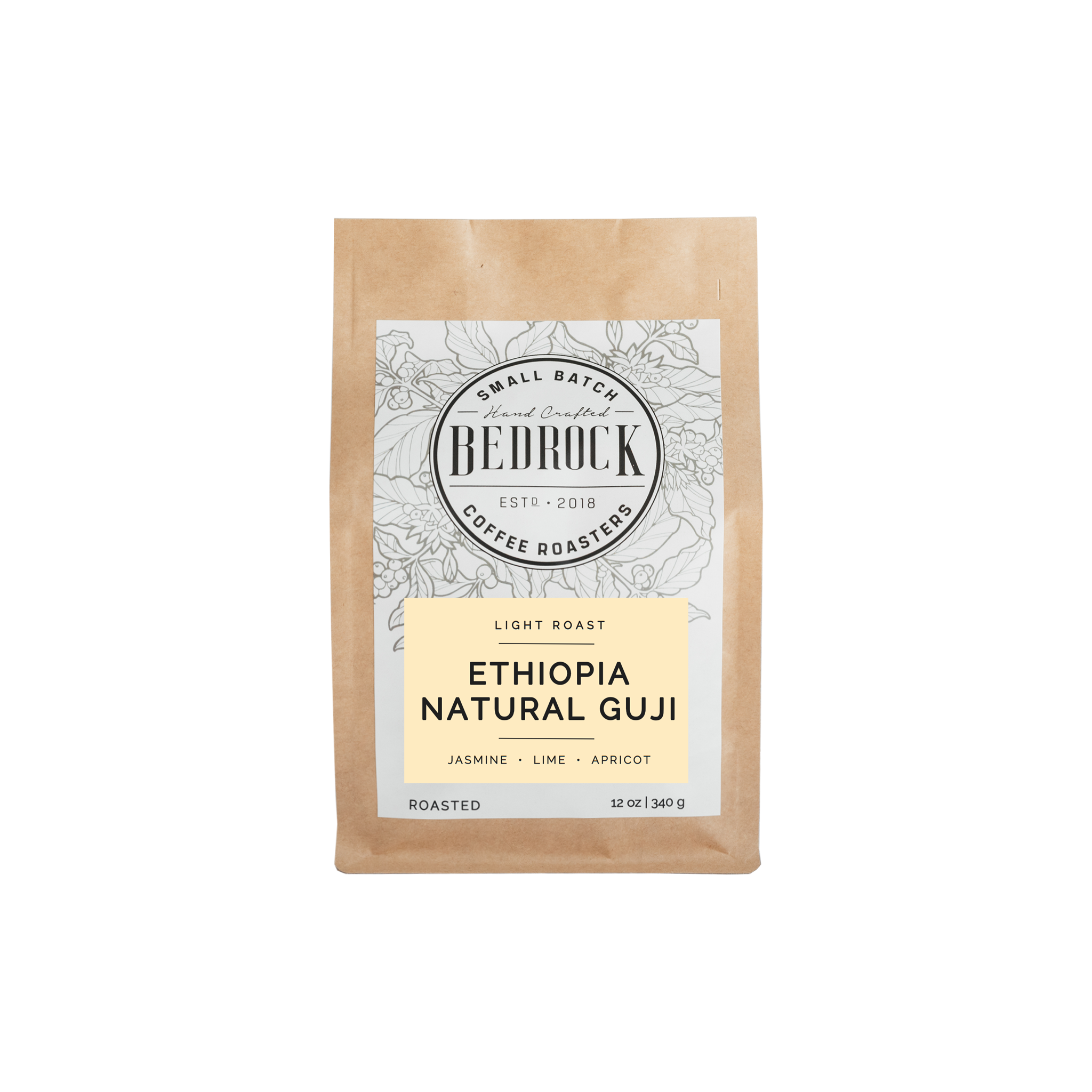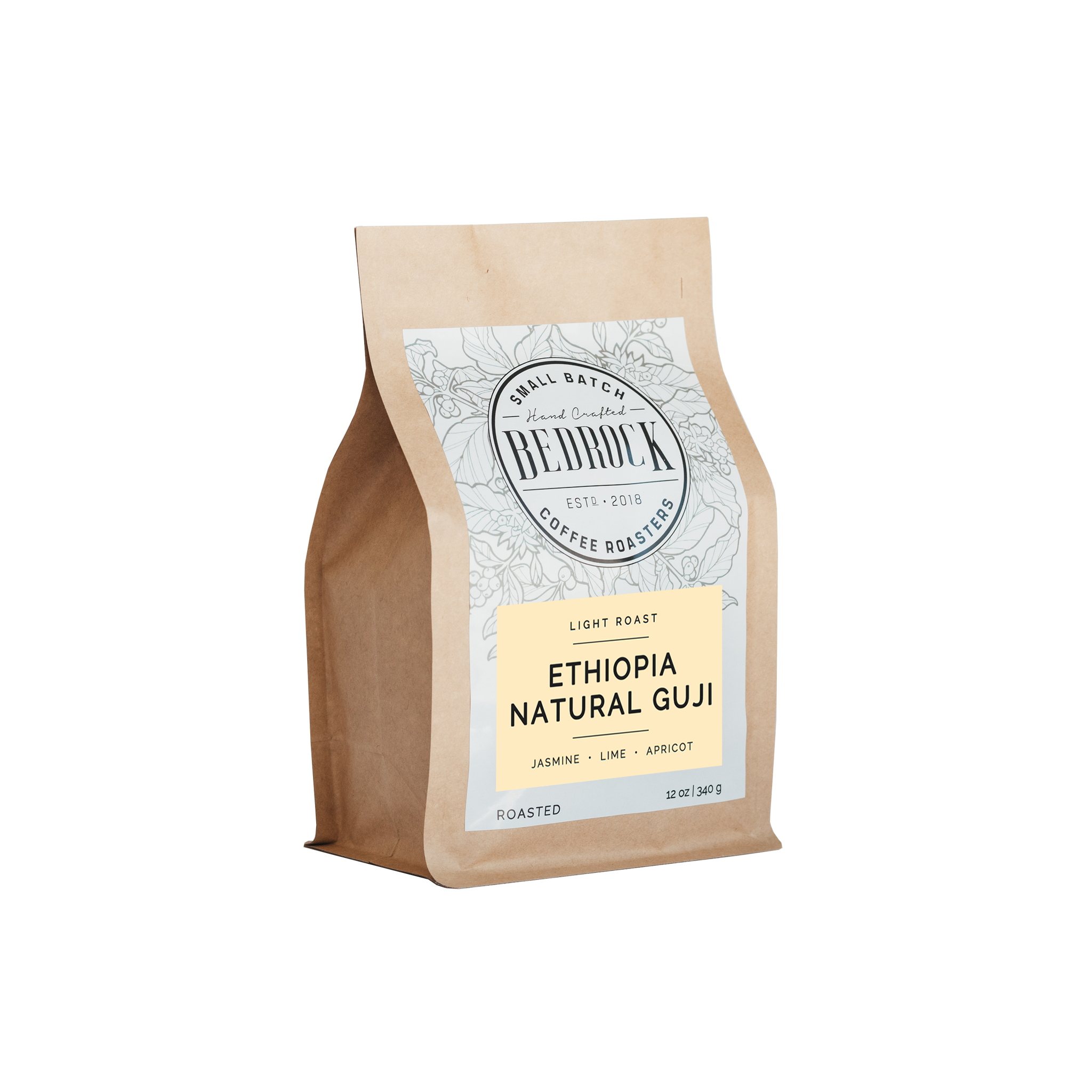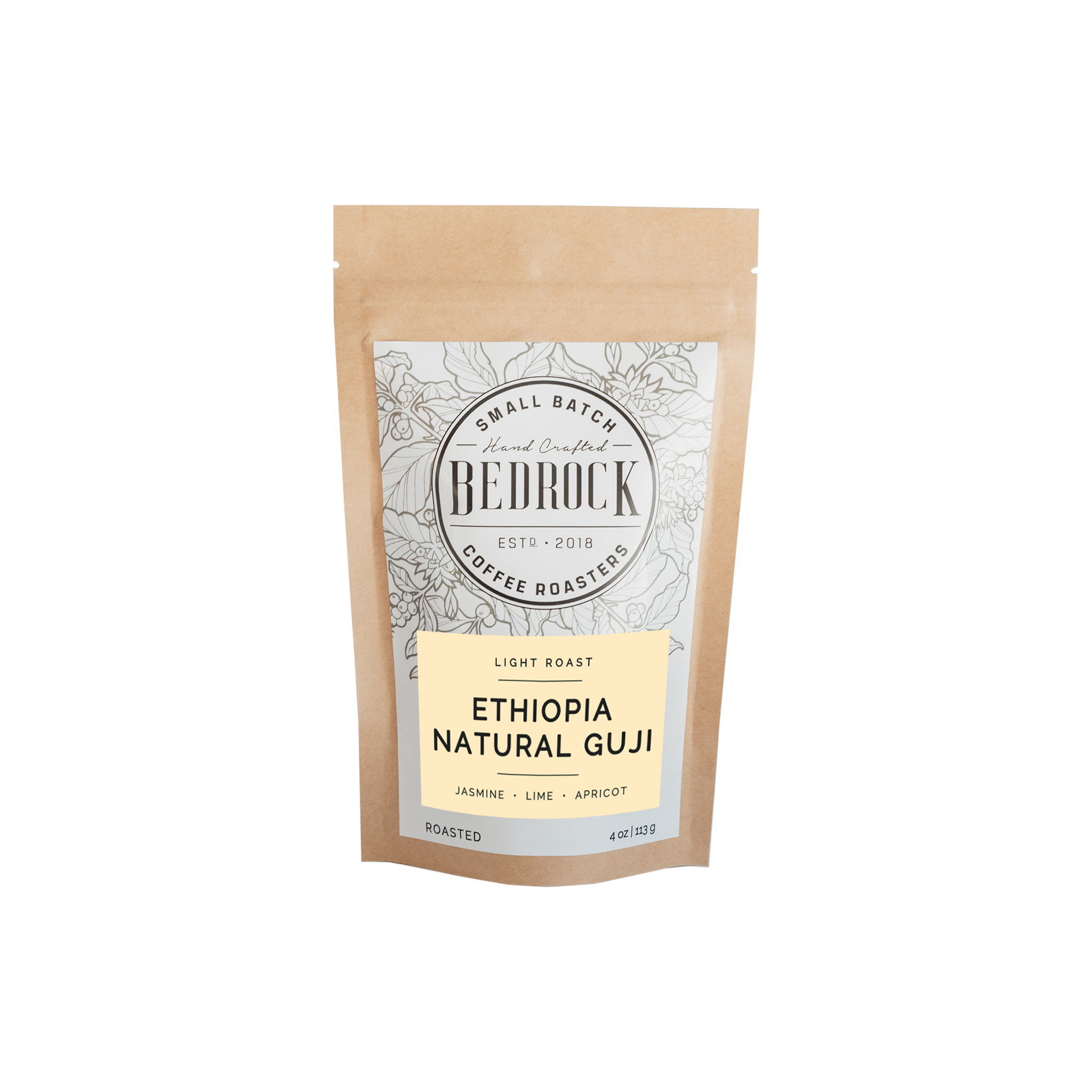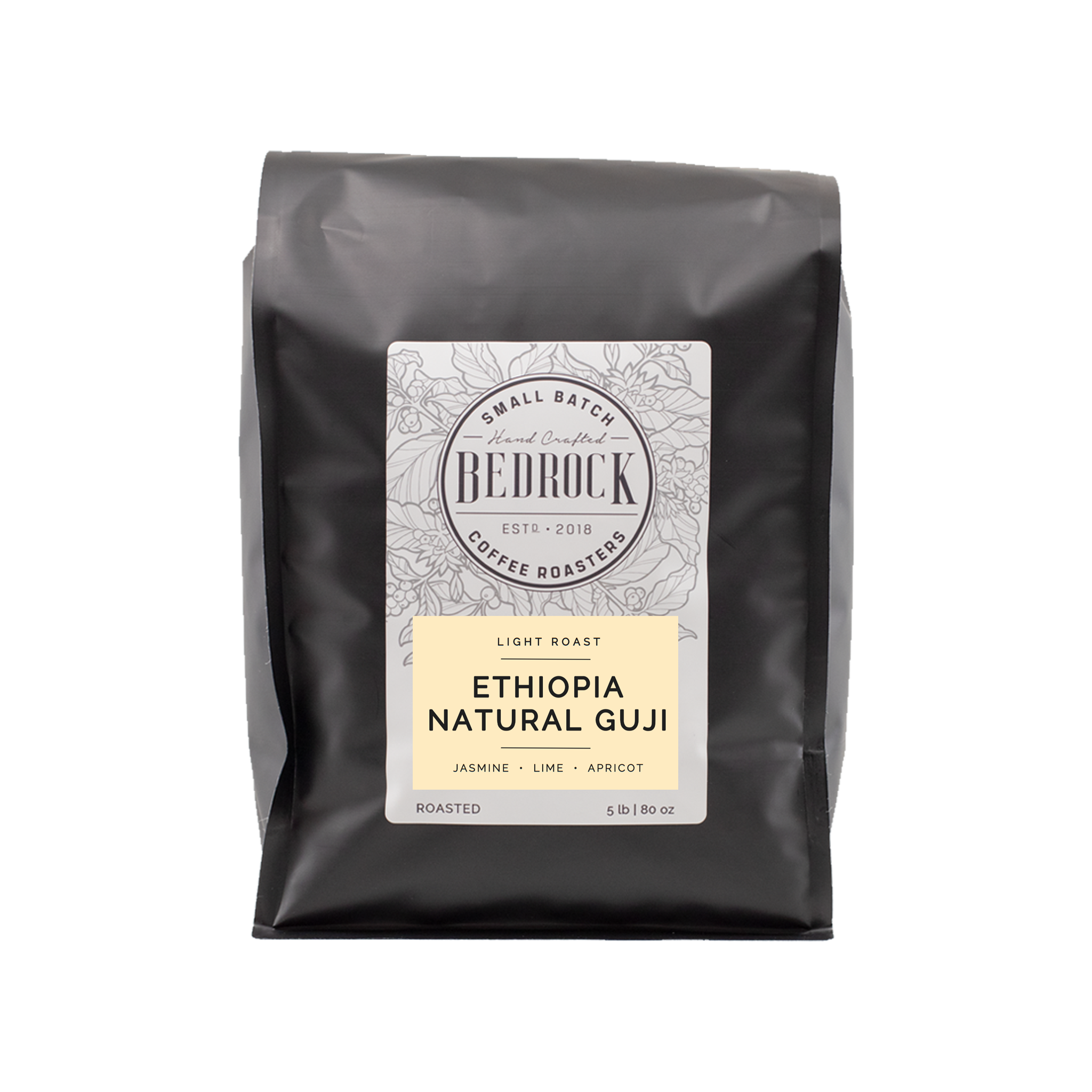Description
Indulge in the captivating flavors of Ethiopia Natural Guji, sourced from the renowned Derhi Fahmi washing station. Crafted in the Guji region, this exquisite offering showcases Ethiopia's rich coffee heritage. Grown in lush coffee gardens and carefully processed at Derhi Fahmi, it delights the palate with tasting notes of jasmine, zesty lime, and succulent apricot. With its floral aromas, vibrant acidity, and fruity sweetness, this coffee embodies the essence of Guji's meticulous craftsmanship. Immerse yourself in the world of Ethiopian coffee with this extraordinary offering from the prestigious Derhi Fahmi washing station.
| Tasting Notes | Jasmine, Lime, Apricot |
|---|---|
| Country of Origin | Ethiopia |
| Region | Guji |
| Washing Station | Derhi Fahmi |
| Altitude Grown | 1900-2200 MASL |
| Variety | Heirloom Ethiopian Varieties |
| Process | Natural |
Country: Ethiopia

Ethiopia is the largest producer of coffee in Africa and the fifth largest in the world. It is a country of incredible biodiversity, and there are over 6,000 known varieties of coffee grown in Ethiopia alone. Each region of Ethiopia has unique coffee varieties, as well as processing techniques and flavor profiles. Coffees are commonly named after the region they are grown in, like Yirgacheffe, Sidama, or Guji.
Coffee in Ethiopia is grown in a unique way, with much of it grown in a forested area known as the coffee garden. This is an area of land where farmers grow coffee trees as part of their natural environment, rather than in a monoculture environment as is typical in many other coffee-growing countries. The trees are often grown among other plants and trees, providing shade and biodiversity that benefits both the coffee trees and the environment.
The harvest season in Ethiopia is typically from October through January, with many smallholder farmers picking and processing their own coffee cherries. Once harvested, the coffee is typically processed using the natural or dry processing method, where the coffee cherry is left to dry on the bean, imparting a distinct fruitiness and complexity to the flavor profile. However, there are also many wet-processing stations in Ethiopia, where coffee cherries are depulped and the beans are washed and dried.
Ethiopian coffee has a complex and diverse flavor profile that is often described as floral, citrusy, and tea-like, with a bright acidity and a sweetness that can range from fruity to caramel-like. It is this diversity in flavor and profile that makes Ethiopian coffee so special, and why it is sought after by coffee roasters and enthusiasts all over the world.
Region: Guji

Located in southern Ethiopia, Guji is an enchanting region characterized by lush forests. Once considered a part of Sidama, it has now emerged as an independent region since the early 2000s. The inhabitants of Guji cultivate coffee gardens on elevated terrains, benefiting from the fertile red soil found in the highlands. This unique geographical advantage sets Guji's coffee apart from its neighboring regions. The local farmers, known as smallholders, meticulously deliver their coffee beans to dedicated washing stations for collective sorting and processing. This collaborative approach enhances the coffee's distinct flavor profile, resulting in delightful notes of fruits, rich chocolate, and delicate floral undertones.
Washing Station: Derhi Fahmi

Coffee is sourced from Guji's Derhi Fahmi washing station, named after the village and the CEO's son. In Ethiopia, smallholder farmers deliver their coffee cherries to nearby washing stations for sorting, weighing, and processing. The blended cherries make traceability challenging, but efforts are made to source from the same stations annually. Farmers in this region typically lack access and therefore don't use fertilizers or pesticides.
Variety: Heirloom Ethiopian Varieties

Although this offering is not traceable to a single variety, it is comprised of native heirloom varieties cultivated in Ethiopia
Process: Natural

After being harvested, natural coffees are promptly delivered and undergo an initial sorting process to ensure optimal ripeness and quality. Following this, they are thoroughly rinsed to remove any dirt. Subsequently, the coffee beans are carefully spread on raised drying beds or tables, where they are continuously rotated to facilitate even drying. The duration of drying varies, typically ranging from 8 to 25 days, depending on weather conditions.





